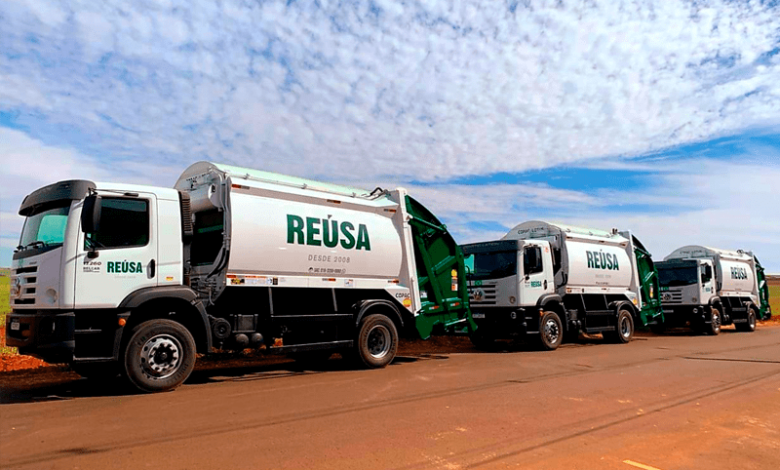What is Reúsa? Complete Information

In a world increasingly burdened by waste, the quest for sustainable solutions has never been more critical. Enter Reúsa, a groundbreaking initiative poised to transform the way we think about waste management and resource conservation. This article delves into the essence of Reúsa, exploring its mechanisms, significance, and realworld applications, providing a beacon of hope for communities and industries alike.
What is Reúsa?
Reúsa represents a dynamic approach to recycling and waste management, focusing on maximizing the reuse of materials across various sectors. It’s not just a service; it’s a movement towards a more sustainable and efficient use of resources.
How Does Reúsa Work?
Collection:
Reúsa begins by gathering materials that are usually discarde as waste from construction sites, industrial facilities, and demolition projects.
Processing:
These materials are then processed, cleaned, and refurbished if necessary, to bring them back to a usable state.
Redistribution:
Finally, these revitalized materials are made available for reuse in new projects, closing the loop on the lifecycle of resources.
Importance of Reúsa
The significance of Reúsa cannot be overstated, with impacts resonating across environmental, economic, and social spheres.
- Reduces Waste in Landfills: By repurposing materials, Reúsa significantly cuts down the volume of waste ending up in landfills, mitigating environmental pollution.
- Conserves Natural Resources: Reúsa limits the need for virgin materials, preserving natural resources and reducing the environmental footprint of production processes.
- Promotes a Circular Economy: It embodies the principles of a circular economy, where resources are reused and recycled, minimizing waste and energy consumption.
- Supports the Local Community: By creating jobs in recycling and material processing, Reúsa bolsters local economies and supports community development.
Where Do I Find Reúsa?
Reúsa’s services are increasingly accessible, with operations expanding globally. Interested parties can connect with Reúsa through its official website, social media platforms, or local environmental initiatives to learn about services in their area.
How to Use Reúsa’s Services?
Utilizing Reúsa’s services is straightforward:
1. Inquiry: Reach out to Reúsa to discuss the materials you have available or require.
2. Logistics: Arrange for the collection of recyclable materials or the delivery of reused materials for your project.
3. Implementation: Incorporate the reused materials into your projects, contributing to sustainability.
Real-world Examples of Reúsa in Action
The impact of Reúsa is best illustrated through its application in various projects:
Recycling at Construction Sites: Unused materials from construction sites are collected, processed, and then used in other construction projects, minimizing waste.
Also Recycling at Industrial Facilities: Scrap materials from industrial processes are repurposed, reducing the demand for new raw materials and decreasing industrial waste.
Recycling at Demolition Projects: Materials from demolished buildings are salvage and reused, preventing them from becoming landfill waste.
Who is Behind Reúsa?
Reúsa is the brainchild of environmentalists, entrepreneurs, and engineers committed to fostering sustainable practices. This collective expertise ensures that Reúsa operates at the intersection of innovation, sustainability, and community empowerment.
Significant Aspects
Reúsa stands as a testament to the potential of sustainable practices in addressing some of the most pressing environmental challenges of our time. Its approach to reducing waste, conserving resources, and promoting a circular economy not only benefits the planet but also supports local communities and economies. Here are key takeaways from the Reúsa initiative:
Sustainability at Heart: Reúsa’s core mission is to make sustainability an achievable goal for everyone, from large industries to individual communities.
Innovative Recycling: Through innovative recycling and reuse practices, Reúsa is setting new standards in waste management.
Community and Economic Benefits: Beyond environmental impact, Reúsa contributes to local economies and community wellbeing.
In a world eager for sustainable solutions, Reúsa emerges as a beacon of hope, demonstrating that with innovation and commitment, creating a more sustainable future is within our reach. By supporting initiatives like Reúsa, we can all play a part in this crucial movement towards a healthier planet.
Conclusion
In conclusion, Reúsa emerges as a transformative force in the realm of sustainable practices, heralding a new era where waste becomes a valuable resource and the circular economy takes center stage. Through its innovative approach to recycling and reuse, Reúsa not only addresses environmental challenges but also contributes to economic development and community empowerment. By actively participating in the Reúsa movement, individuals, industries, and communities can collectively shape a future where responsible resource management is not just a choice but a fundamental aspect of our daily lives. As we embrace the principles championed by Reúsa. We pave the way for a more sustainable, resilient, and harmonious relationship between humanity and the planet we call home.
FAQs along with their answers:
FAQ 1: How can “reuse” be defined in simple terms?
Answer: Reuse refers to the action of using something again instead of throwing it away. Whether it’s in its original form or with minor adjustments.
FAQ 2: What’s another term for “reuse”?
Answer: Another term for reuse is “repurpose,” implying the act of finding a new use for an item instead of discarding it.
FAQ 3: Can you use “reuse” in a sentence for clarity?
Answer: Certainly. “By deciding to reuse glass jars as storage containers for pantry items, we can significantly reduce kitchen waste.”
FAQ 4: Should I write “reuse” as one word or hyphenated as “re-use”?
Answer: Both “reuse” and “re-use” are correct, but “reuse” is more commonly used and accepted in modern English.
FAQ 5: What does it mean to engage in the practice of reuse?
Answer: Engaging in the practice of reuse means actively choosing to use items more than once or finding new applications for old items, thereby reducing waste and saving resources.





One Comment